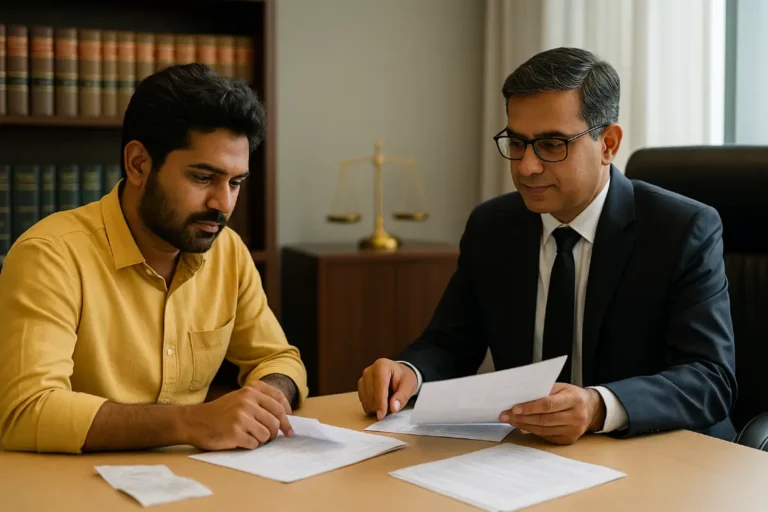Definitive 2025 Guide to Hindu Child Custody Laws in India
Hindu child custody laws in India are designed to safeguard your child’s welfare and define parental rights when families separate.
When a Hindu marriage ends or spouses separate, determining who cares for the child can be complex and emotionally charged. Hindu child custody laws in India establish the legal framework for deciding which parent or other guardian will raise a minor, and on what terms. This article explains the main custody concepts, relevant statutes, and court considerations, weaving in practical tips to help you prepare your case with confidence and clarity.
1. Understanding Custody under Hindu Child Custody Laws in India

Under Hindu child custody laws in India, custody refers to the rights and duties of raising a child, including both day-to-day care and major life decisions. Parents typically share joint custody, meaning they collaborate on parenting duties. Upon divorce or legal separation, courts can grant:
- Sole physical custody: The child resides primarily with one parent.
- Sole legal custody: One parent makes major decisions alone.
- Joint custody: Both parents share residence time and decision-making.
Courts favor arrangements promoting the child’s stability, continuity of schooling, and emotional well-being. By granting physical custody to one parent, the child enjoys a consistent home, while joint legal custody ensures both parents remain involved in significant choices.
Unsure which custody type suits your family? Speak with us for tailored guidance.
2. Statutory Framework for Hindu Child Custody Laws in India
Child custody under Hindu law is governed by three key statutes:
- Hindu Marriage Act, 1955 (Section 26): Empowers family courts to resolve custody, guardianship, and access disputes. (Section 26, Hindu Marriage Act, 1955)
- Hindu Minority & Guardianship Act, 1956 (Section 7): Presumes a child under five should reside with the mother, unless she is shown to be an unsuitable guardian. (Section 7, Hindu Minority & Guardianship Act, 1956)
- Guardians and Wards Act, 1890 (Section 19): Emphasizes the “welfare of the child” principle, every decision must serve the child’s best interests. (Section 19, Guardians and Wards Act, 1890)
In practice, courts interpret these provisions together, balancing statutory presumptions with each family’s unique circumstances.
3. Physical vs. Legal Custody in India under Hindu Child Custody Laws
Understanding the two custody dimensions can shape your petition:

Physical custody involves the child’s everyday life: residence, routine, schooling, healthcare visits, and recreational activities. The parent with physical custody provides primary care and day-to-day supervision.
Legal custody covers significant life decisions: education choices, medical treatments, religious upbringing, and overseas travel permissions. Even if one parent has physical custody, courts often grant joint legal custody so both parents can consent on critical issues.
Courts seldom award sole legal custody unless a parent demonstrates incapacity, such as mental health issues or addiction, posing a potential harm to decision-making. Clear evidence, like medical reports or certified evaluations, is crucial when seeking sole legal custody.
4. How Courts Allocate Child Custody in India
When granting custody in divorce or separation, courts assess:
- Age of the child:
- Below five years: Mother is presumed the primary caregiver unless proven unfit.
- Above five years: The Court weighs parental capabilities and child preferences.
- Below five years: Mother is presumed the primary caregiver unless proven unfit.
- Parental fitness: Health, moral character, and capacity to nurture.
- Child’s welfare: Safety, stable environment, and emotional support.
- Child’s preference: Given weight if the child is mature enough (commonly above 10–12 years).
- Home environment: Proximity to school, extended family support, and community ties.
Courts articulate their reasoning in written orders, explaining how these factors led to a specific custody award. Reviewing prior judgments, particularly at your local family court, helps anticipate outcomes.
5. Main Factors in Hindu Child Custody Laws in India
Family courts place the child’s best interests above all. Key elements include:
- Child’s welfare: Holistic well-being, physical, emotional, and educational.
- Child’s inclinations: Courts consider a mature child’s preference.
- Parental fitness: Includes mental health, absence of substance abuse, and moral standing.
- Stability: Consistency in schooling, housing, and social circles.
- Siblings: Keeping siblings together when possible.
- Cultural/religious background: Honoring a child’s religious upbringing unless harmful.
Courts may order social welfare reports or appoint guardians ad litem to submit third-party recommendations on the child’s best interests.
6. Strengthening Your Petition under Hindu Child Custody Laws in India

To present a compelling case:
- Organize evidence: School records, medical bills, photographs, and travel itineraries.
- Character references: Letters from teachers, doctors, or respected community members.
- Stable environment proof: Tenancy agreements, school admission letters, and utility bills at your residence.
- Demonstrate involvement: Logs of daily routines, extracurricular activities, and healthcare visits.
- Avoid negative optics: Refute allegations of misconduct with clear documentation; maintain decorum in court filings.
A well-documented petition not only clarifies your position but also builds judicial confidence in your custodial capability.
7. Interim Child Custody: Keeping Stability During Proceedings
Divorce or guardianship cases can stretch over years. Interim custody orders ensure the child’s living situation remains stable until final hearings:
- Temporary orders define lodging, expenses, and holidays.
- Revision options allow adjustments if circumstances change, such as relocation or urgent schooling needs.
- Maintaining continuity: Courts avoid disrupting the child’s routine, limiting shifts in residence or school mid-term.
Interim custody is crucial for safeguarding the child’s welfare from the outset of litigation.
8. Visitation Rights under Hindu Child Custody Laws in India
Visitation, also called “access,” maintains the child’s bond with the non-custodial parent:
- Flexible schedules: Weekends, school holidays, festivals, and vacations.
- Safe locations: Supervised visits at neutral venues or family homes.
- Exchange logistics: Arrangements for drop-off/pick-up that minimize disruption.
- Virtual access: Video calls as supplementary contact when distance is a factor.
Courts tailor access orders to minimize academic disruption and respect the child’s comfort level.
9. Modifying Child Custody and Access Orders under Hindu Law

Custody and access orders are not set in stone. Either parent or concerned relatives may petition for modification upon significant changes:
- Relocation: Parental move affecting schooling.
- Health shifts: Mental health or physical incapacity.
- Abuse or neglect allegations: New evidence alters parental fitness.
- Child’s changing needs: Maturity, special education requirements, or medical treatments.
Under Section 26, courts revisit orders based on updated evidence, always centering on the child’s evolving best interests.
10. Financial Support & Child Maintenance in Hindu Child Custody Cases
Both parents are financially responsible for their child’s upbringing:
- Maintenance orders: Under Section 24, courts can direct monetary contributions for education, health, food, and accommodation.
- Proportional payments: Contributions align with each parent’s income level.
- Duration: Support continues until the majority son up to age 18; daughters until marriage, even post-majority.
Oversight mechanisms like periodic reviews ensure maintenance aligns with the child’s needs and inflationary pressures.
11. Filing Your Child Custody Petition under Hindu Law
To initiate proceedings, file in the family court handling your divorce or guardianship matter:
- Draft petition: Outline the custody type requested and supporting factors.
- Attach documents: Birth certificate, school reports, financial records, and welfare recommendations.
- Affidavits: Sworn statements detailing parental involvement and the child’s welfare.
- Hearing preparation: List of witnesses, including teachers or counselors, to testify on your behalf.
Timely and accurate filings prevent delays and enhance judicial receptivity to your case.
Conclusion
If you’re facing a custody dispute or need guidance on Hindu child custody laws in India, contact ManAt Legal today. Our experienced team will help you protect your child’s welfare and navigate the legal process with confidence.







